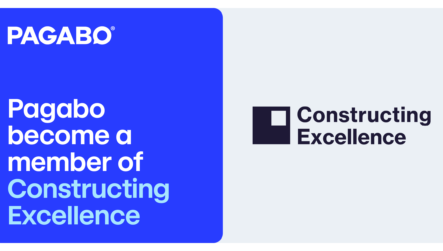
Compliance is king in procurement, which means processes must be rigorous.
Everything a bidding organisation submits as part of a framework tender is asked for specifically before being reviewed. This marks the beginning of a meticulous process to ensure the best collection of organisations is assembled – in a way that pioneers ethical procurement.
Pagabo frameworks utilise a one-stage procurement process that covers selection criteria and award criteria in a single submission. Our bid evaluation process involves nine stages – aligning with the nine stages of a bid submission process aimed at qualifying the right bidders – before awards are confirmed and a framework goes live.
But what are those nine stages completed by our team of procurement experts and what do they involve? Let us explain.
1. Submission review
All submissions are downloaded after being submitted electronically by the agreed submission date, downloads are categorised into evaluation stages and assigned the relevant evaluation lead. Any bidders that have provided an incomplete submission will be notified, so that they are aware they will not receive a full review by the end of the process.
2. Bona fide tender
This simple stage is completed to confirm all bidding organisations have signed and returned a bona fide tender declaration to support their bid. The bona fide tender is confirmation that the bidding organisation has returned its bid in good faith and accepts the conditions of the opportunity.
3. Lot selection review
This stage is a review of bidding organisations intended lot and regions submissions.
We also use this stage to review the lot representation within bidder submission, so we can identify if there are any particularly competitive areas. Depending on the scope of the frameworks, we often find that certain central areas are particularly competitive.
4. Financial standing and turnover
Relevant frameworks will each have proportionate and transparent selection criteria relating to economic and financial standing. Our assessment will involve evaluating a bidder’s reported accounts from the previous two financial years to determine average turnover and modelling this against the minimum pre-defined turnover requirement for the lot applied for. We will also evaluate credit scores and reports to ensure these meet minimum acceptable criteria.
5. Selection questionnaire
Pagabo uses an industry agreed question set and corresponding assessment standards for qualification of bidders.
It assesses areas of risk management and requires bidders to provide supporting documents and evidence. By utilising a standard question set, it supports the reduction in duplicate non-value add workload for bidders. By completing the pass/fail, or for information only questionnaire, we’re gathering a range of information including insurances, capability, and accreditations.
We don’t generally see suppliers fail this stage unless they inform us of grounds for mandatory exclusion, which must be declared. The information provided must be correct up to submission and commencement of the framework.
6. Policies
We request several policies that align with our own values here at Pagabo and meet the demands of the client market. This can include those on mental health and wellbeing, social value, carbon reduction and cyber security, which we request must either be in place at the point of submission or within 12 months through a commitment to change. Our framework managers then work with suppliers to ensure the commitment is fulfilled.
7. Case studies
On average, we request three case studies per lot application. These must be relevant, including an overview and client contact details in case we wish to request a reference.
These first stages are all devised to meet an objective, pre-defined, minimum standard detailed in the tender documentation. Suppliers will either pass or fail these stages, without any scoring against the information provided.
8. Price assessment
Depending on the scope of the framework, the price assessment is typically worth 30 to 40% of an overall bid score.
To complete a price assessment, we will generally ask for either overheads and profit percentage rates, or day rates, depending on the scope of the framework.
A comparison of returns from bidders will be completed using the pre-defined criteria to determine the highest scoring bidder.
We conduct a sustainability test completed during this stage to identify any bidders that submit potentially abnormally low pricing to ensure the appropriate evidence is provided to support the sustainability of bids.
9. Quality evaluation
The quality evaluation is typically worth 60 to 70% of an overall bid score, making it a high-importance stage of the process.
This stage compromising of approximately nine to 15 questions is evaluated by an external team to ensure Pagabo remains impartial. A team of dedicated experts relevant to the subcategories then provide scores and analysis. An independent moderator within the external team will moderate each return for consistency prior to finalising and returning to us.
Consolidation and preparation for award
Once all stages of the evaluation are completed, the final step involves consolidating the results to determine the award recommendations. If a framework has allocated pre-reserved places for SMEs, these will be allocated first, and then remaining places are allocated to the highest scoring non-SMEs.
Once the award recommendation is determined, the recommendation is subject to several approval boards prior to entering into standstill. The standstill period is a defined period of time between the notification of the framework award decision and the award of the framework.
Each bidder is provided with a comprehensive and consistent overview of the evaluation outcome of their bid, supported by appendices to evidence the evaluation decisions. Pagabo provides appendices to evidence score summary, comparative anonymous scoring against all others, individual quality score, anonymised ranking sheet and highest scoring quality bidder.
This is all completed in an effort to drive transparency and to help bidders understand how their score has been calculated and support future improvements.
In a fast-paced industry, we don’t stand still
Despite this clear process that we follow, we are always on the lookout for key industry changes and trends to see where frameworks can maintain best practice. Working alongside suppliers, we take feedback very seriously and see value in understanding what the bid process was like for them. For example, if we can improve the terminology or timescales to make the process easier for suppliers, then we will make an effort to do so. The feedback from successful and unsuccessful bidders is equally important to us.
Find out more about our frameworks below:
Discover our frameworks
















































































